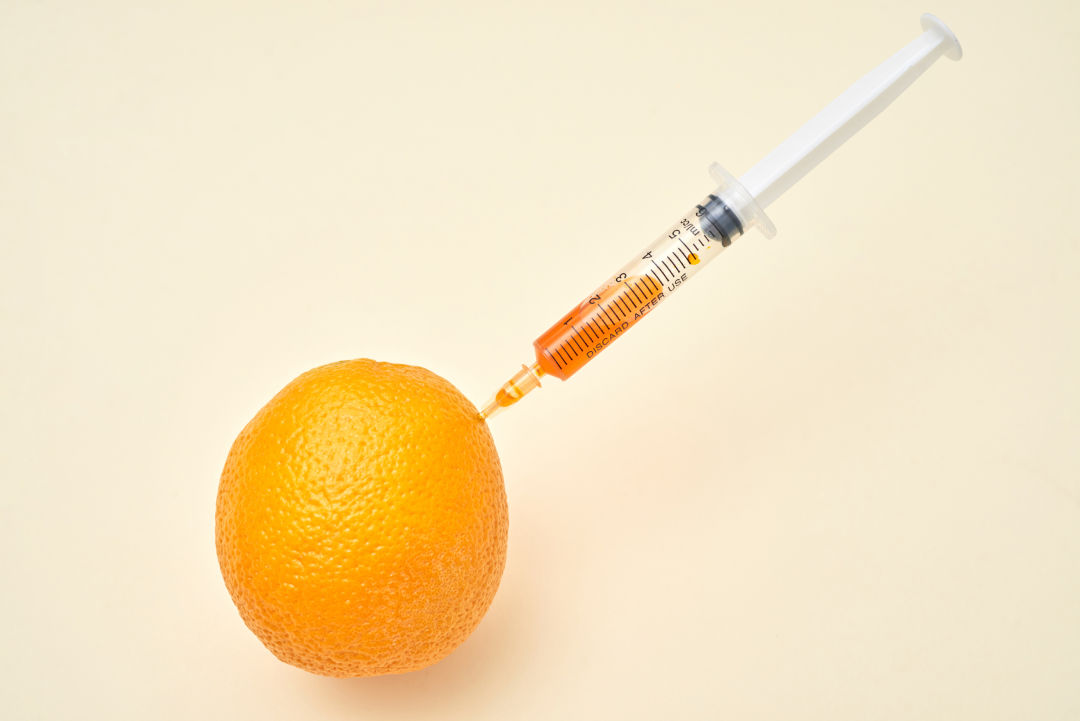Does Vitamin C Help Protect You Against COVID-19?

In times of crisis, people look for anything that can help them. And locally, at least, that has meant stocking up on vitamins and supplements. The typically packed bottom shelf of Emergen-C at QFC and Fred Meyer now look sad and picked over. A single pack of Cold-Eeze lozenges is going for nearly $30 on Amazon. But in a world where very little is known about how to treat COVID-19—other than the advice to treat it as you would any other cold or flu—can you blame people for trying to regain some control over their bodies?
We talked to Alexander Michels, a research associate at Oregon State's Linus Pauling Institute, who has spent 20 years studying how vitamin C affects the body.
Vitamin C. Coronavirus. What's the deal?
I've seen a lot of things online saying vitamin C will destroy coronavirus. There’s this pseudoscience that I’ve been encountering lately. There’s absolutely no evidence for that in the scientific literature.
I’m among the people who would love to see vitamin C do amazing things. But until it’s published in a scientific journal, I couldn’t make any comment on its efficacy against coronaviruses—especially this COVID-19. There is a movement to use intravenous vitamin C in treatment of disease. It’s achieved a little bit of success in the cancer realm. And there’s some evidence that it has some effect with viruses. The question is what does it do and how does it work? Theoretically, it’s a possibility. There’s a clinical trial going on right now in Wuhan. But people are advocating for it before the evidence is even out. That gets us into a dangerous situation. Intravenous vitamin C and supplemental vitamin C are two different animals. Even though vitamin C is very safe and you can inject large amounts of it into someone and see no ill effects–that doesn’t mean that you’re going to destroy coronavirus.
Does vitamin C help our bodies at all?
Absolutely. It helps. Let me start by saying, vitamin C is an important part of the immune system. It's not alone in helping the immune system function properly. There's lots of things that help but vitamin C is one of those things.
But I think about this in terms of extremes and where we should be on this messaging. I was watching John Oliver the other day and he was talking about people guzzling bleach—people acting like idiots—or just ignoring the problem. You have to be between those two extremes. You don’t want to guzzle vitamin C like crazy without any thought to the consequences of that, but you also don’t want to ignore it.
How do you recommend doing that? Do you get enough vitamin c in a normal diet?
It depends on the recommendations you listen to. The National Academy of Medicine recommends that people take 90mg a day of vitamin C. But those recommendations are really to avoid deficiency, right? Some researchers say that science says 200mg of vitamin C per day is enough to keep levels high in the body. And the proponents recommend 400mg per day to keep levels high in the body, mainly because there’s a lot of uncertainty about absorption. We really don’t know that much about where vitamin C goes and does things throughout your normal life. So to account for a possible variation between one person and the next, we bumped the recommendation up to 400 mg a day. But there are people out there taking much, much more than that.
400 mg, 200mg... those are achievable through diet. You don’t have to take supplements to achieve that but you do have to pay attention to what you’re eating. A kiwi, for example, will give you a good amount of vitamin C... much more than an orange. But unless you’re eating all those rich sources continuously, you may have difficulty reaching 400 mg a day. For people who don’t eat a lot of fresh fruits and vegetables, you may have to look at a supplement.
But if you’re going beyond that, that’s supplemental range. If someone tells you need 1000 mg of vitamin c per day, there’s no way you can do that through diet alone.
Is there a difference in the quality of vitamin c—between a kiwi and a packet of Emergen-C?
There’s really no difference between what they call synthetic—which is kind of a misnomer—and natural vitamin C. There’s this whole synthetic versus natural argument, that the vitamin c found in fruits and vegetables is different than the vitamin c found in supplements. I have to say there’s really no evidence for that. Vitamin C is vitamin C regardless of the source. There may be things in fruits that help you absorb it better, but the science is really unclear. That’s a grey area in science.
What will happen to you if you go extreme and take a ton of vitamin C?
The worst thing that will happen to you is you’re going to get horrible gas. Vitamin C is very safe—and you can’t really say that about other vitamins. Something that’s actually dangerous is loading up on fat-soluble vitamins. Vitamin C goes in its own category of safety because your body will limit the amount it will absorb and it will increase the excretion of vitamin c to get you back down to a safe level. And there hasn’t been shown to have any harm to have a high level of vitamin C in the blood. There are people out there who like taking high amounts of vitamin C and they can do that because there’s really no downside to doing so. Gas is the first sign that you’ve taken too much—and then diarrhea and bloating, gastrointestinal issues. The body is trying to flush out what it sees as an excess in the colon.
There’s actually something called the "vitamin C flush," where people do that on purpose. It’s a really unproven approach. There’s people who swear by it but there’s no science to back that up. One other thing: kidney stones have been reported by people who take vitamin c supplements for a long period of time. It doesn’t cause them, but it’s an increase in risk over time.
What are the other things people can do for their immune system?
I can only speak to the ones I have familiarity with. A lot of the vitamins obtained in healthy amounts are important for the immune system. The ones that make the headlines are important: vitamin D, which everyone in the Northwest is kind of on the edge of being deficient unless they’re taking supplements. D has a good safety profile, unless you get to really, really high doses. Vitamin E can also have some effects on the immune system, but you don’t want to go overboard on the fat-soluble vitamins. We don’t quite understand where that safety range is. Vitamin A also has a role in a healthy immune system, but it’s another thing you don’t want to have too much. Zinc is another one—supplements have been used in clinical studies to shorten the duration of colds. One that popped up to me recently is iron, which is important if you're anemic. In the time of a viral outbreak, now is not the time to be complacent about your anemia.
So what's the takeaway? Should we be taking vitamin C or not?
Vitamin C isn’t necessarily a shield—it’s not going to stop people from getting infected with any virus: the common cold, influenza, coronavirus… It won’t stop it. But if you have a healthy immune system, and your immune system defeats the virus before you see symptoms, then that’s great. And vitamin C is part of that. But you can’t put all the focus on vitamin C alone.




